Most Technology Hasn’t Advanced Since The 1960s
We live in the future and it sucks
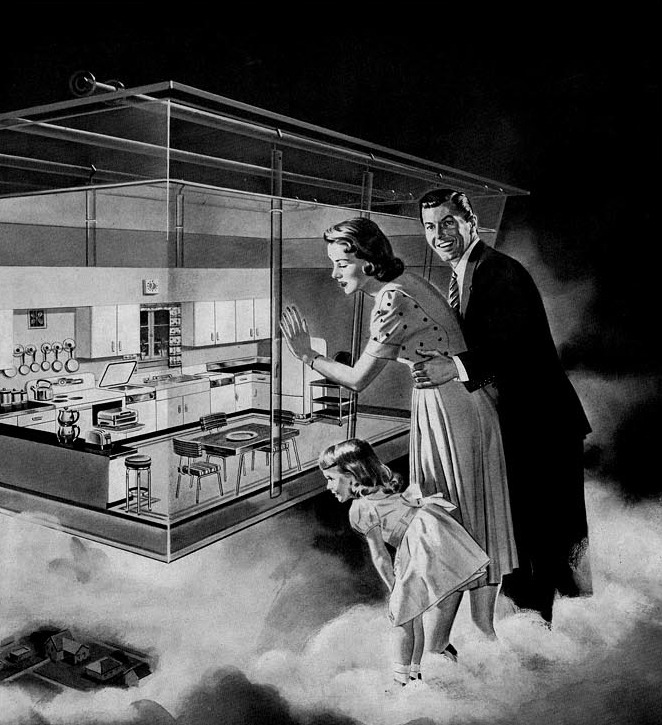
I often wonder why life still sucks. Yes I have a smartphone with Internet but every other piece of technology is basically the same as the 1960s. A washing machine is still a washing machine. A fridge is still a fridge.
There hasn’t been category changing innovation for decades, besides in information technology. Most of the technology that touches our lives has stayed the same or gotten worse.
A Tale Of Two Fridges
Here’s a fridge from 1966. It’s called the Gemini 19. First off, dope name, like part of the space program.
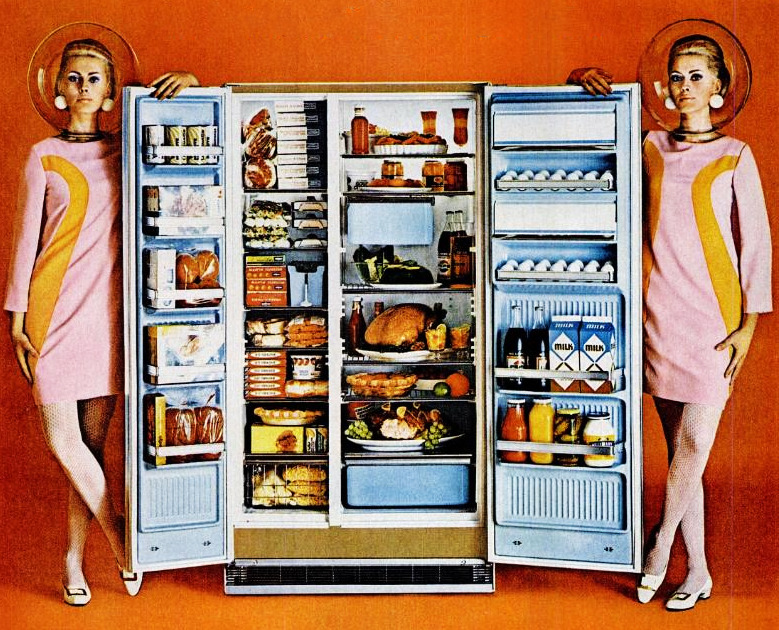
Now here’s the Whirlpool WRF535SMHZ, Wirecutter’s top pick for 2017. The name alone tells you how much innovation has stalled.
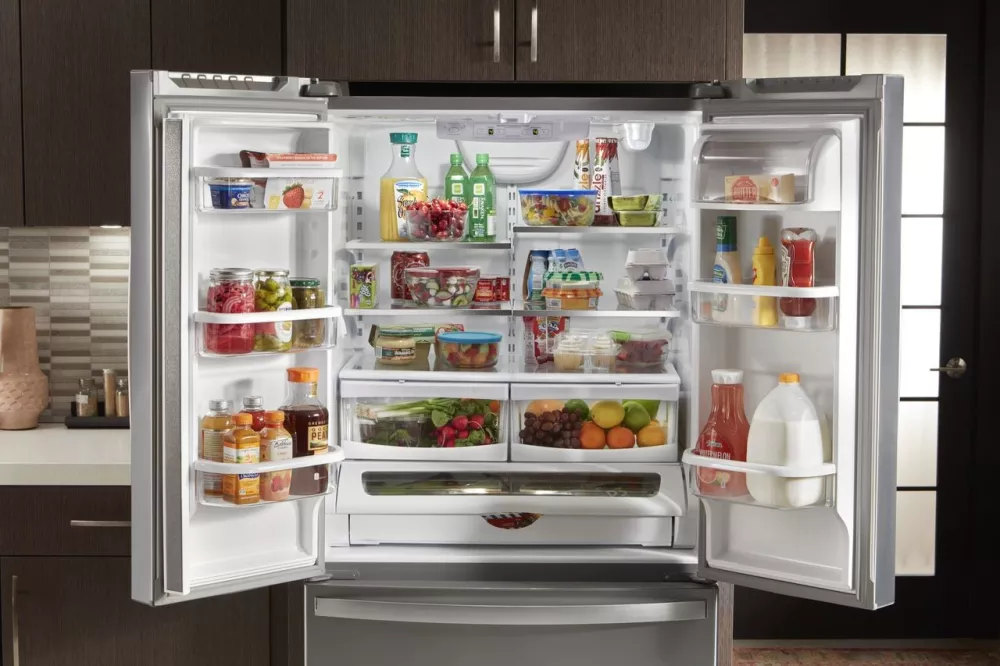
The WRF535SMHZ (lol) is from 50 years in the future, and looks basically the same or worse than the Gemini 19. Can you even fit a turkey in here? Where are the space people?
Old appliances were also built to last, whereas modern appliances seem built for obsolescence. If you ask repairmen, they’ll tell you that old fridges and washing machines lasted decades while new ones break down sometimes within years and are replaced rather than repaired.
The only modern innovation in home appliances is making them ‘smart’, which basically means sticking a smartphone in them. Which is dumb.
Housework Is Still The Same
When home appliances came out, they invented entire categories of technology that didn’t exist before. People didn’t have to break their hands to wash clothes, they didn’t have to get ice delivered to preserve food, they didn’t have to beat carpets with sticks.
This technology reduced the amount of time we spent on housework (meals, laundry, cleaning) from 58 hours per week in the 1900s to 18 hours by 1970. Which is amazing. That’s an extra 40 hours a week — enough to hold down another job.

If you project that progress forward we should be spending negative 10 hours on housework per week. A 2018 washing machine should actually expand the amount of space-time in the universe. Of course it hasn’t worked out that way. Not even close. In 2015 we spent an average of 15.5 hours on housework*, a savings of a whopping 2.5 hours over Betty Draper in 1969.
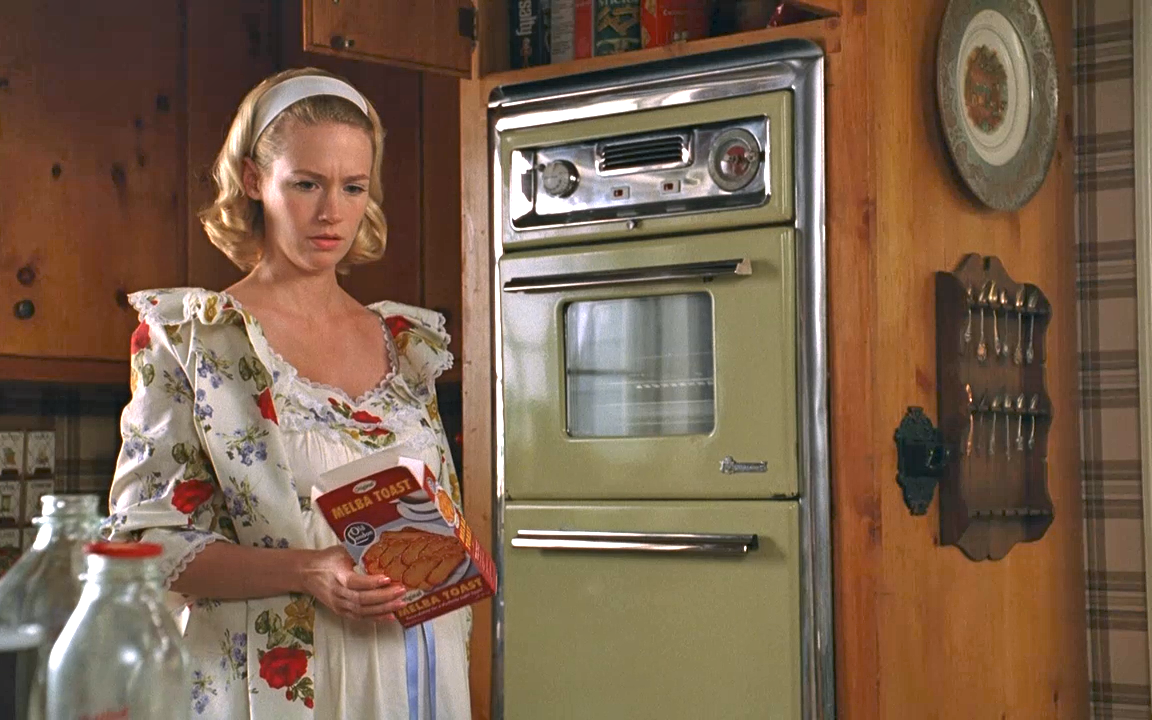
* as a caveat, I spend zero time on housework. I live with in Sri Lanka and have domestic help. But that’s another story.
A Tale Of Two Planes
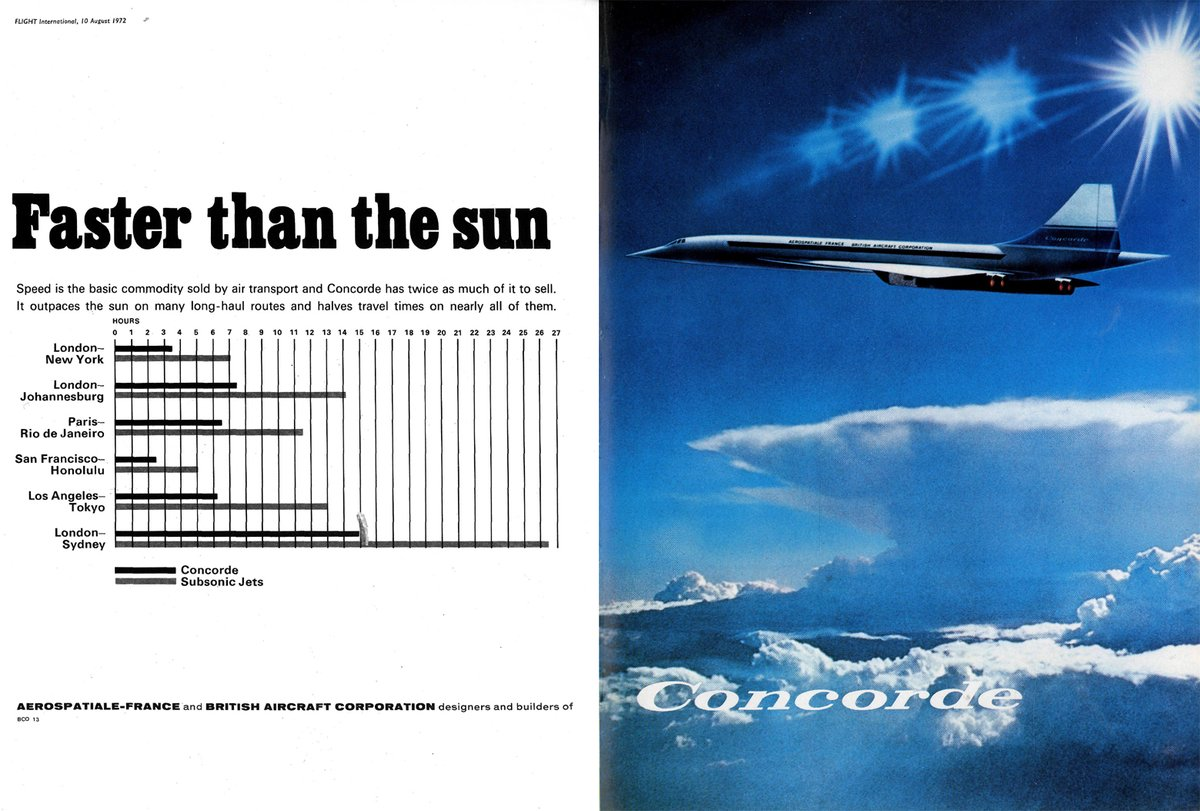
It’s not just home appliances. Take planes.
The Concorde, launched in 1969, flew from London to New York in 3.5 hours compared to the 8 hours it takes now. The Concorde also produced sonic booms and was commercial unviable, but even normal planes flew faster back then:
Specified cruising speeds for commercial airliners today range between about 480 and 510 knots, compared to 525 knots for the Boeing 707, a mainstay of 1960s jet travel. (alum.mit.edu)
Over the last 50 years places have improved fuel economy and are generally more efficient, but their basic function — getting you someplace fast — has actually gotten worse.
A Tale Of More Things
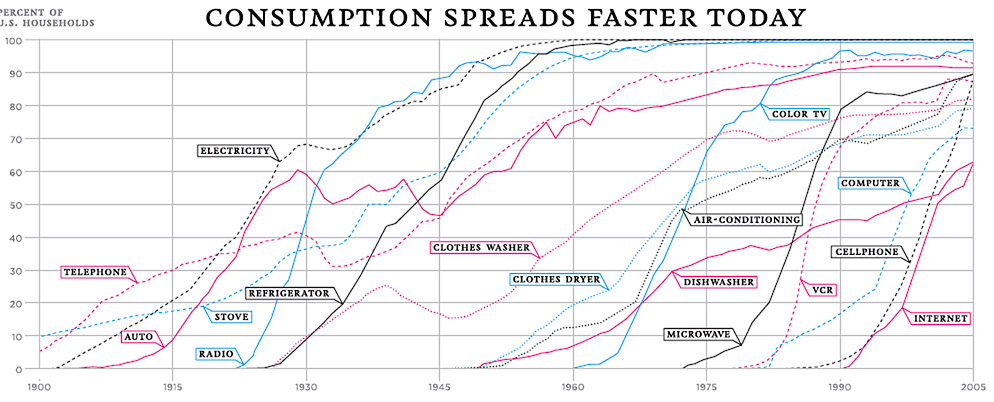
Think of any consumer technology that isn’t an ICT (Information Communication Technology). It was probably invented 50–100 years ago and hasn’t changed much since. Cars, toilets, vacuum cleaners, toasters, dishwashers, microwaves (invented 1945), etc. The only major household innovation in the past 50 years has been the Roomba, a robotic vacuum cleaner.
Then think of all the things you can’t think of because they haven’t been invented. The future isn’t what it was cracked out to be.
The Impact On Manufacturing
People often talk about the decline in the manufacturing sector like it’s something China took away. It’s not. Manufacturing is in decline because there isn’t innovation and there aren’t new products that can deliver big profits.
Companies have been making the same products for 50 years, so bored of it they just name them serial numbers.
You can see that manufacturing adds less and less value to both the US and global economies. It’s because the products suck.
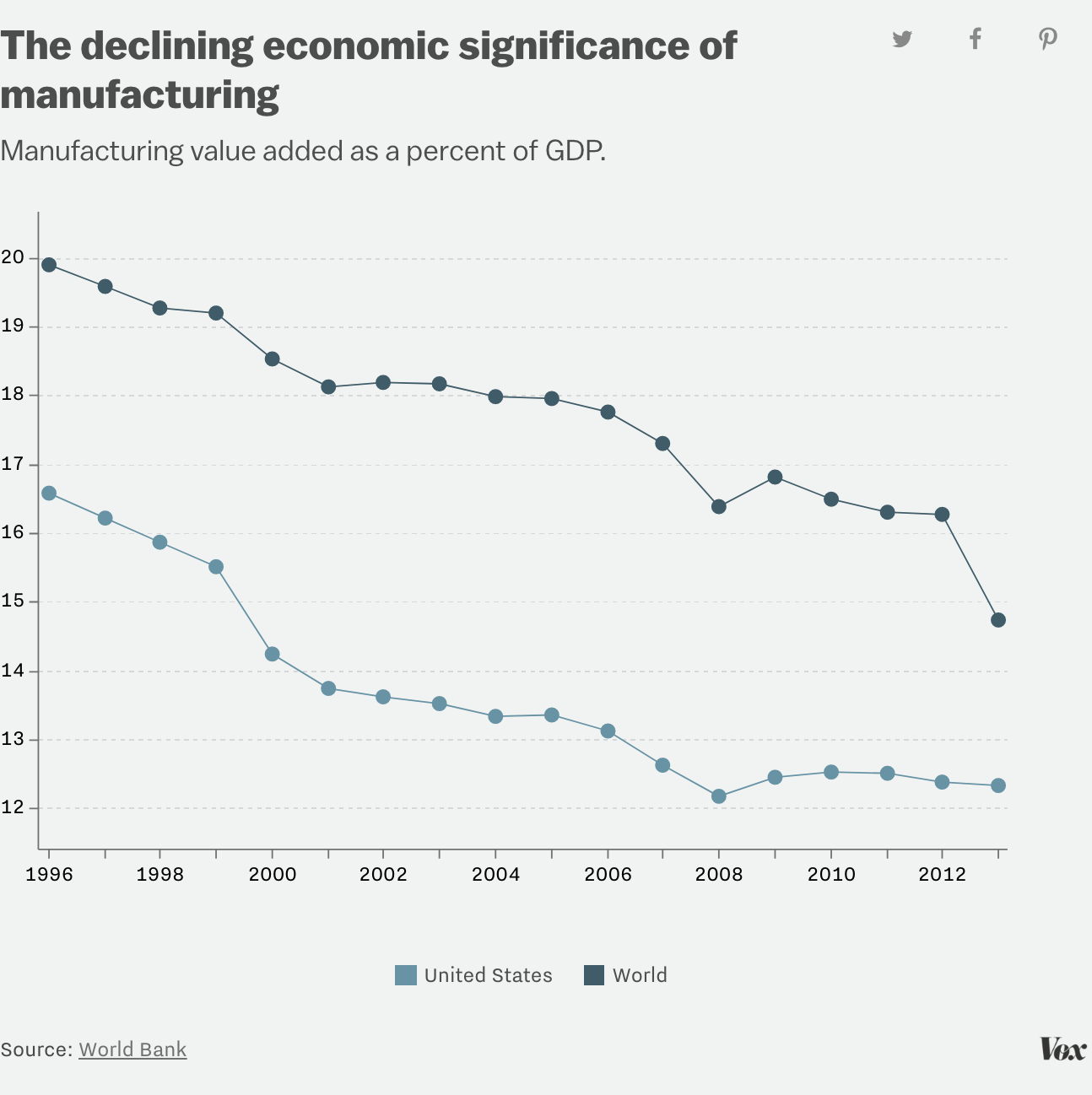
American factories now produce about twice as much per worker as they did in the 1980s. But we’ve mostly gotten cheaper goods or modest quality improvements — not the invention of major new product categories. As a result, the manufacturing sector is winning a smaller and smaller share of consumer spending. (Vox)
Welcome To The Future
This is the future we live in. Our daily lives aren’t much different from 50 years ago and we still have to deal with household chores that put pressure on our marriages, take time away from kids, etc. We drive slower in more boring cars, fly slower in more crowded planes and live our lives on a platform of most 1960s technology.
The only difference is that we have better communication and information technology, but that also involves watching videos at lower quality than film, hearing music at lower quality than records and having human connections at a lower quality than meeting up at a bar.
The most innovative companies in the world today are in the advertising, media and shopping businesses. They make it easier for us to be distracted, to be entertained and to buy things, but the things we buy haven’t fundamentally changed for decades. After the explosion of science and technology and manufacturing in the early 20th century, major consumer innovation has basically stopped.
This is the future we live in. It sucks.